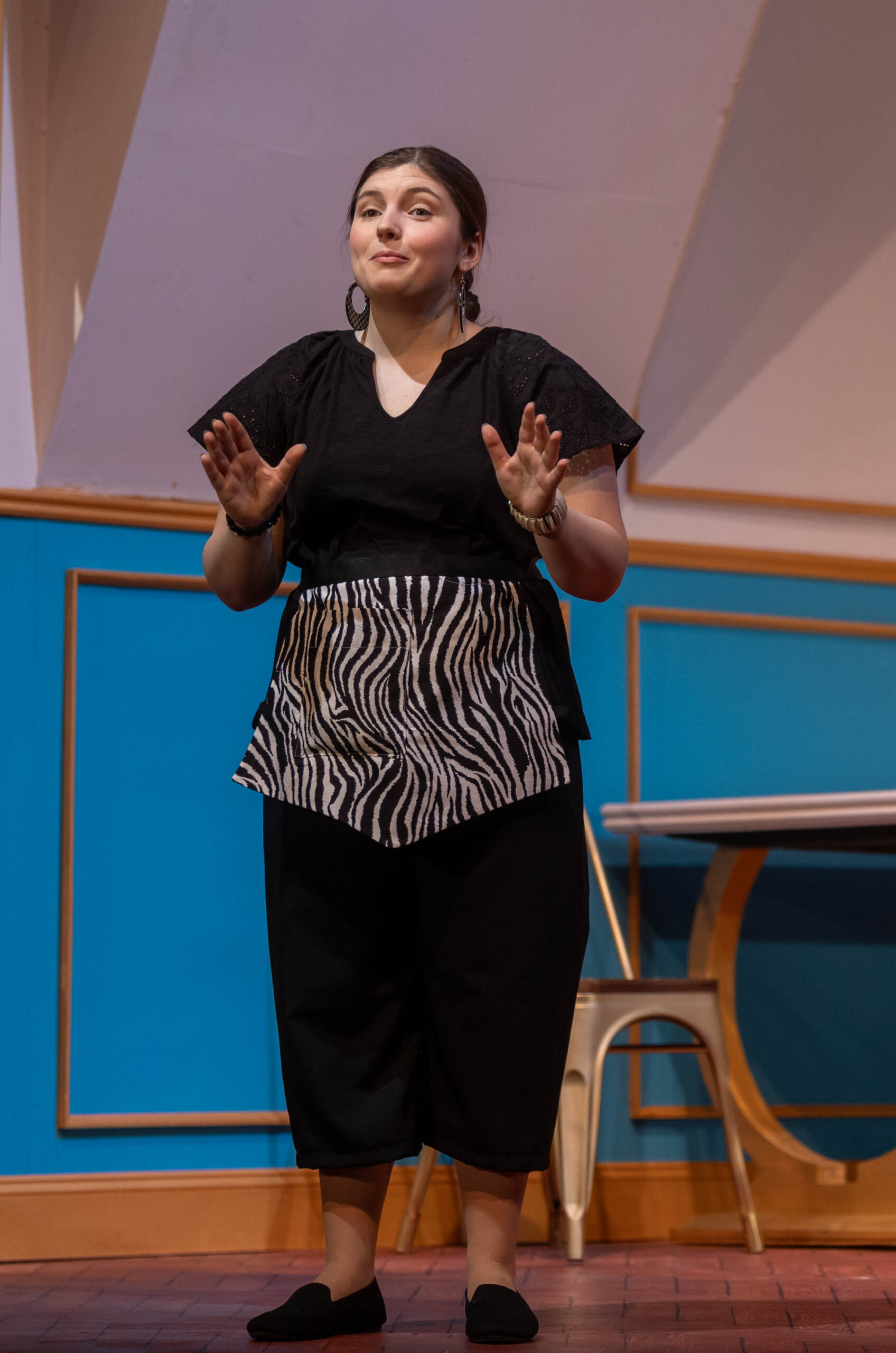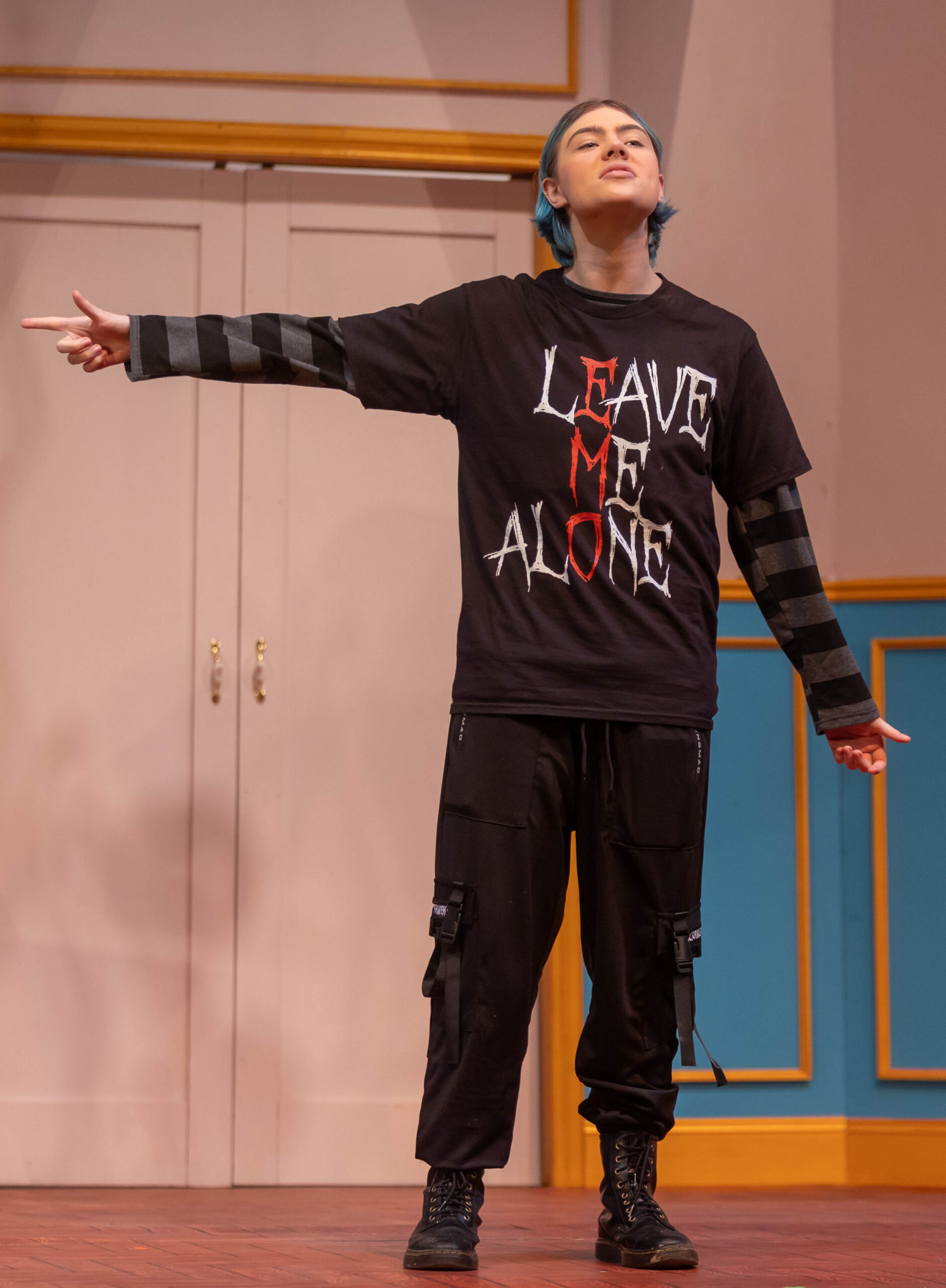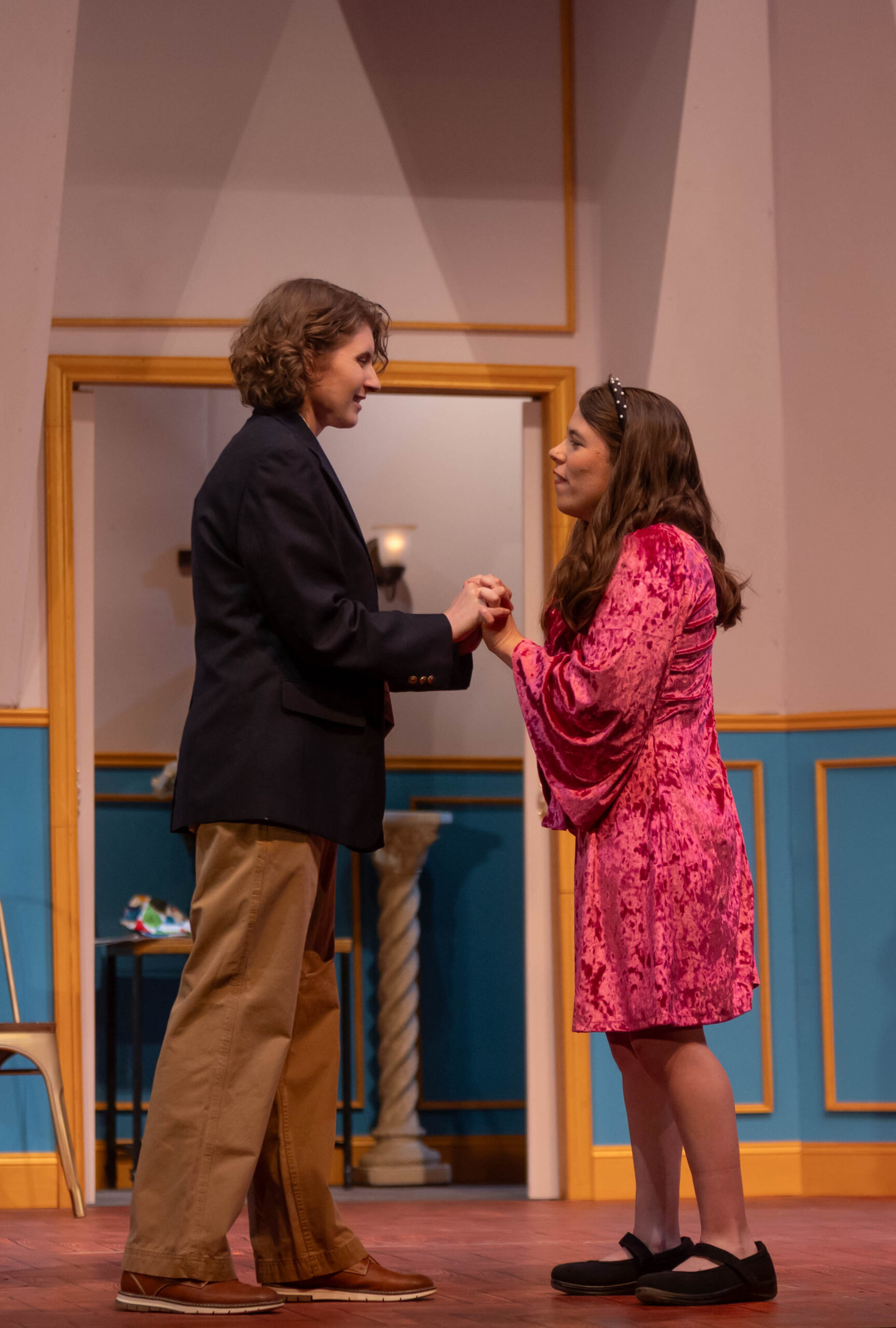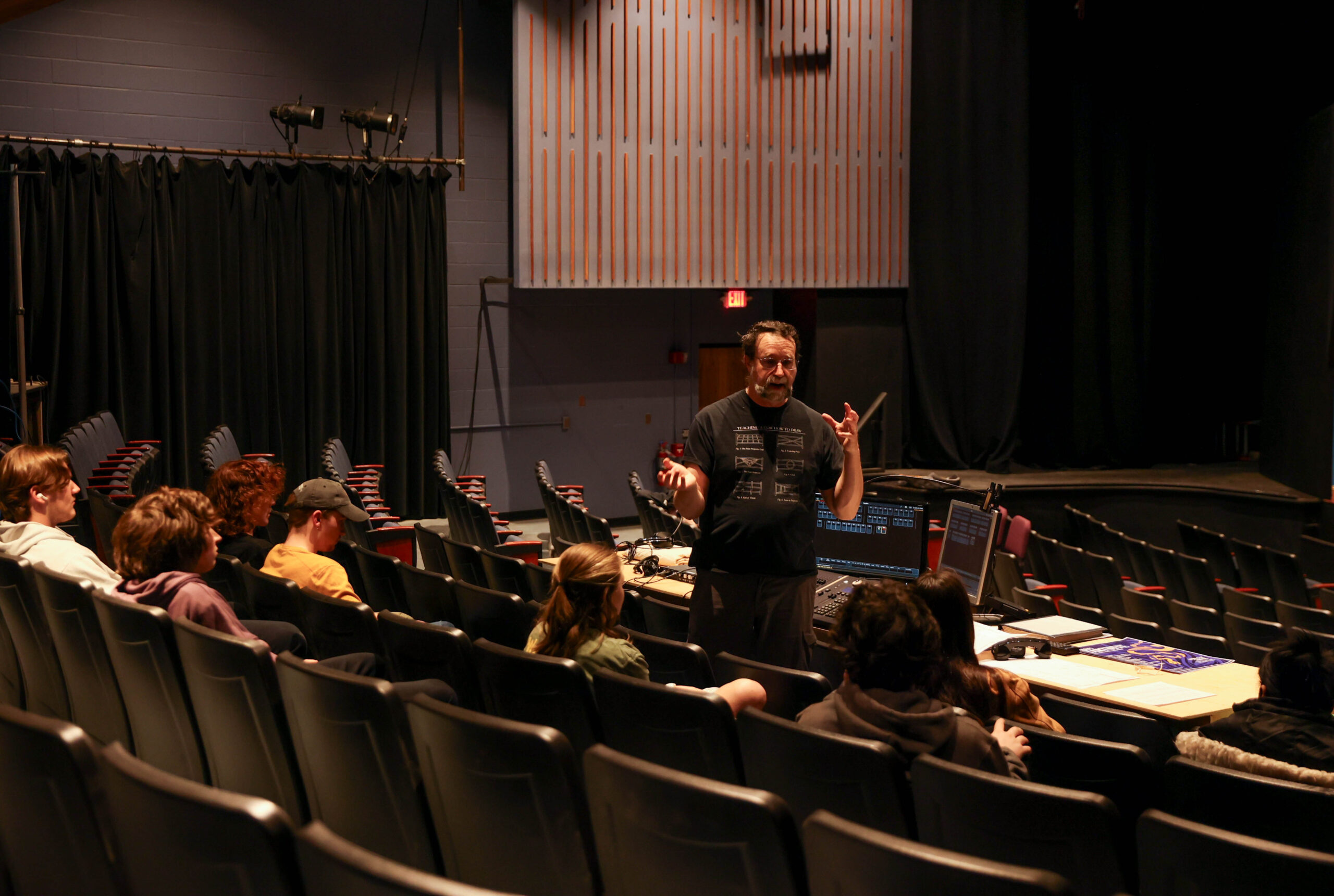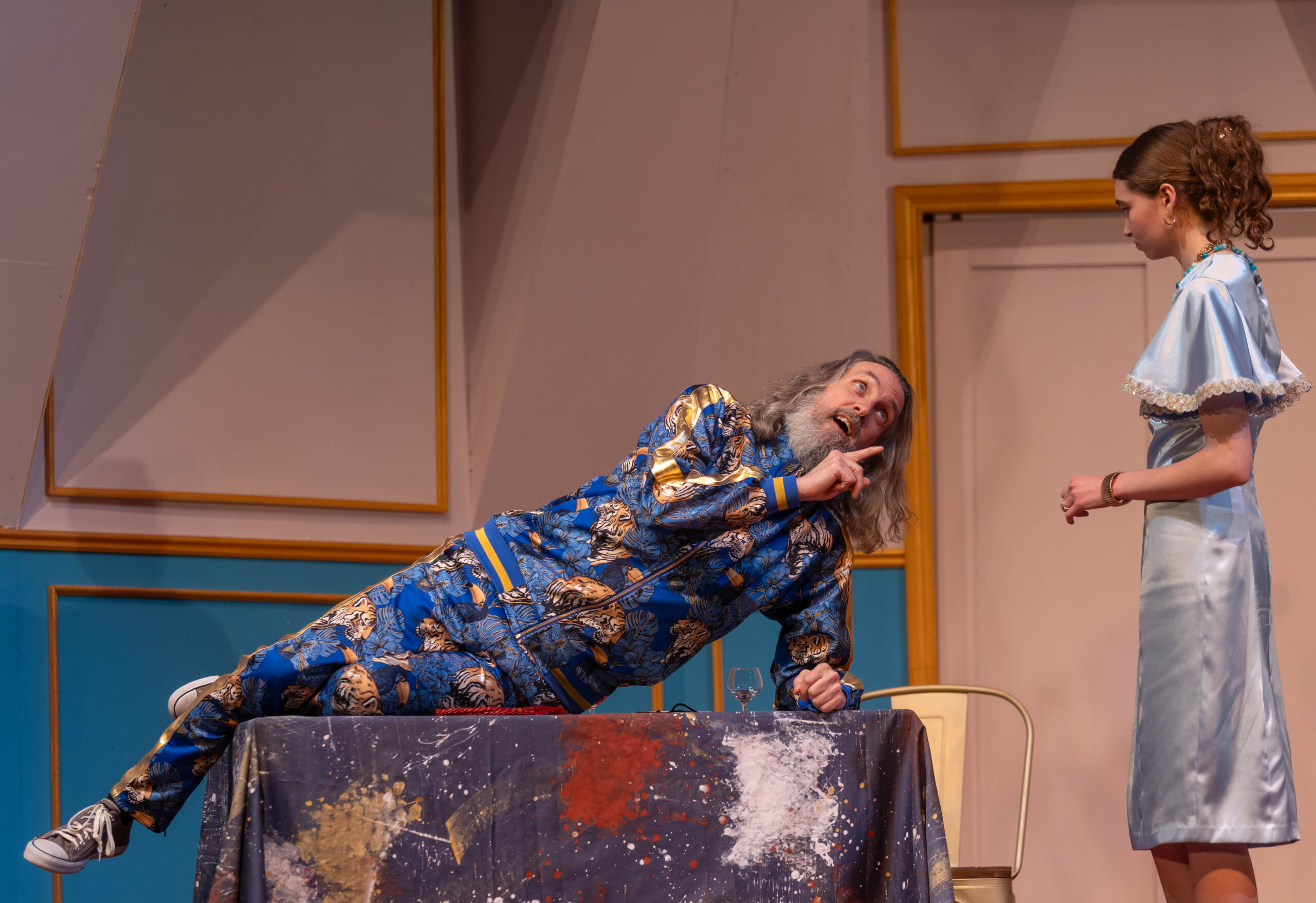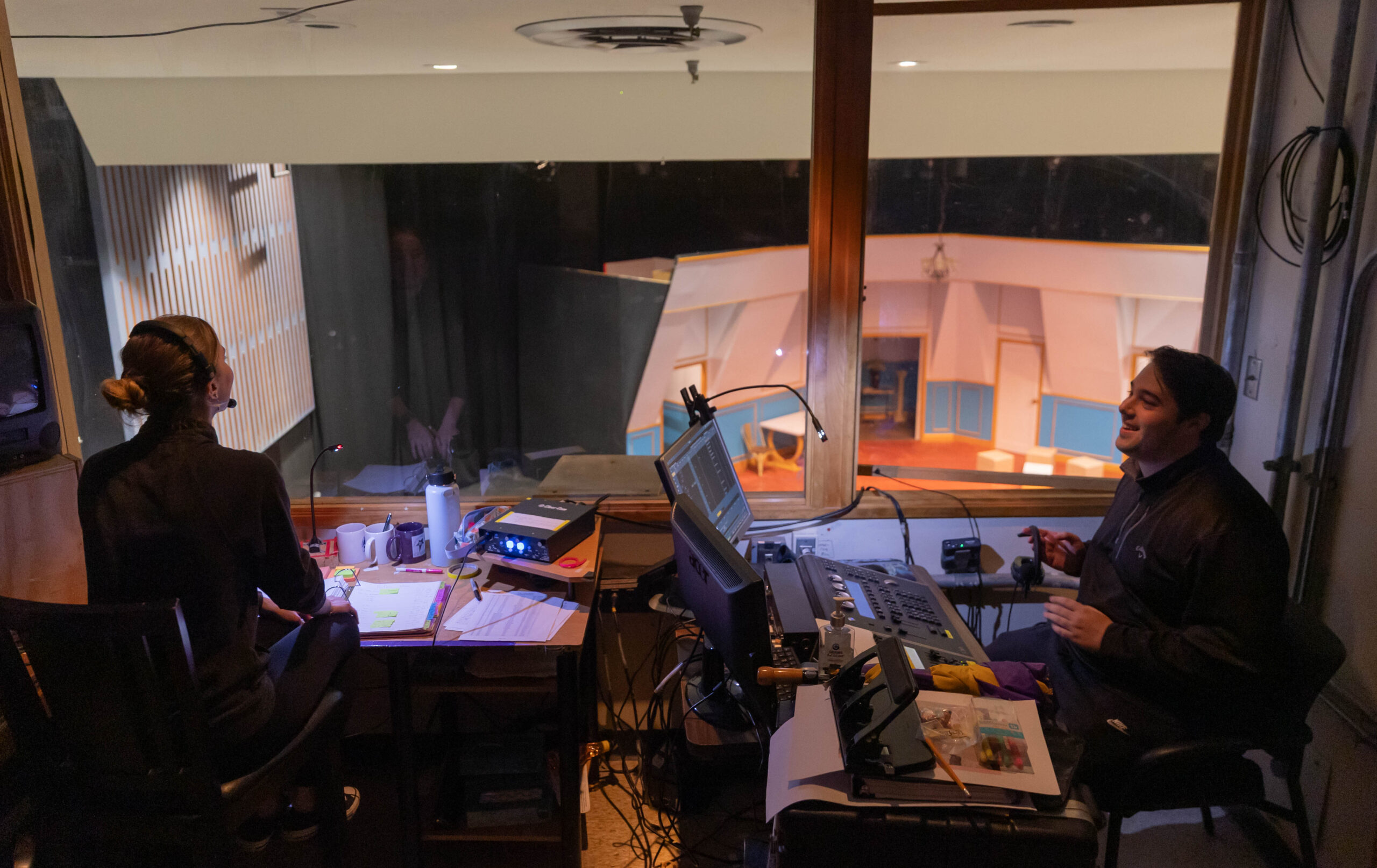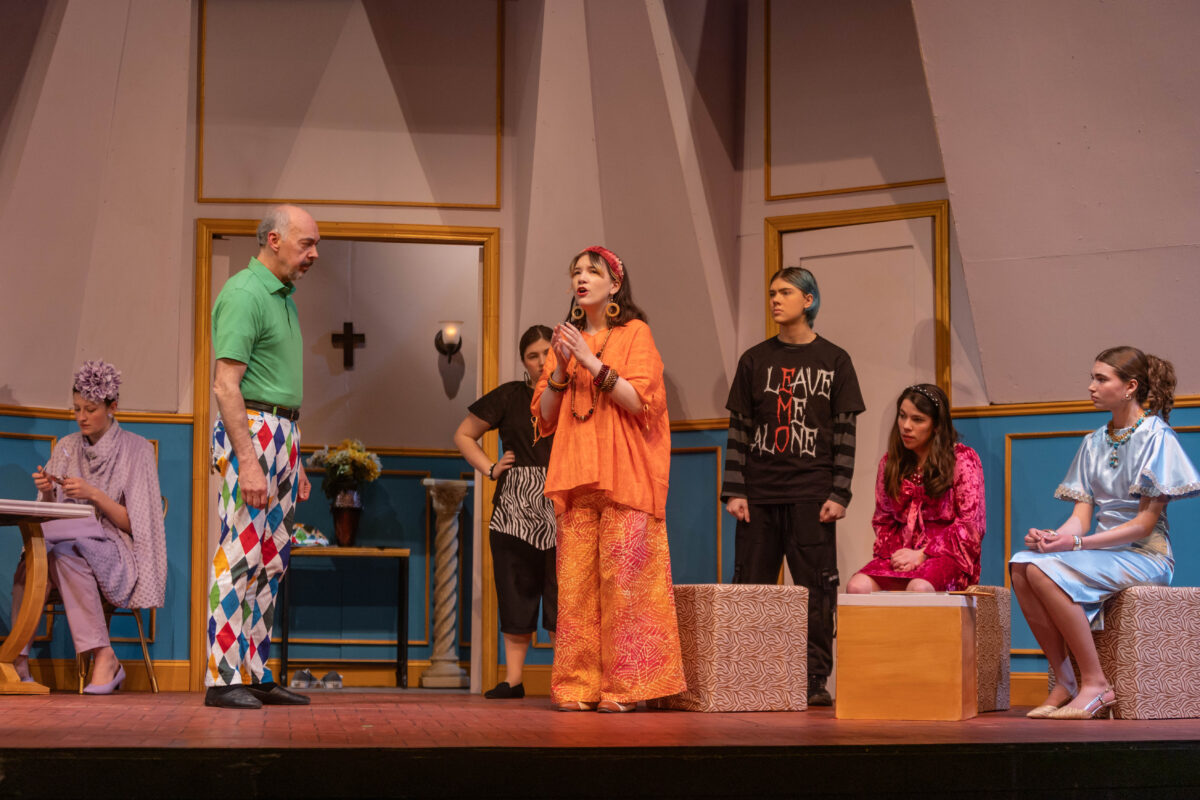
Josiah Welch | Features Editor | jwelch3@mail.smcvt.edu
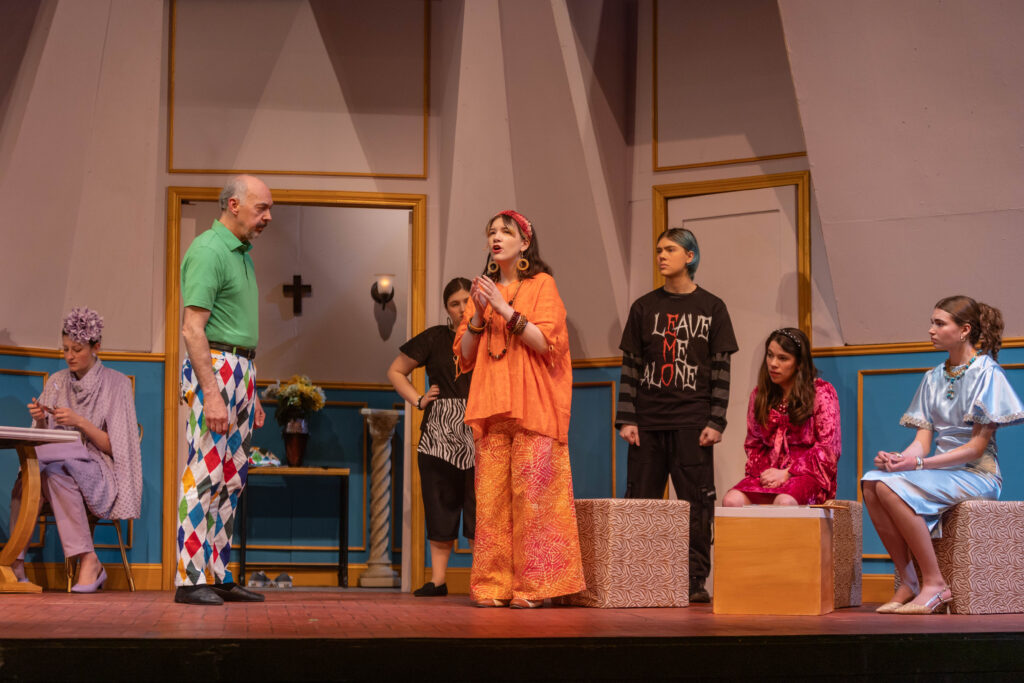
Imagine a 1600’s comedy, beloved for its timeless humor, but with a twist. Add in modern dialogue, fresh cultural references, and a stage design that blends the past with the present.
That’s exactly what St. Michael’s Fine Arts theatre department is doing this spring, breathing new life into a centuries-old satirical comedy. Molière’s Tartuffe, a play that tackles religious hypocrisy, will be staged at the McCarthy Arts Center Theatre from April 9-12, at 7 p.m. Performances are free and open to the public.
Tartuffe was originally banned in France upon its debut in 1664 for its critique of religion. Co-director Melissa Lourie, an acting instructor at St. Michael’s and the artistic director of Middlebury Acting Company, said it “remains as relevant as ever.”
Lourie started Middlebury Acting Company as a production focused non-profit in 2001. The professional theater company is known in Vermont for its high-quality performances that blend entertainment with depth. The company produces “both classic plays and modern plays that are thought provoking,” Lourie said.
The play is co-directed by guest director and professor in the theater department at The University of Vermont, Margo Whitcomb. St. Michael’s professors of fine arts, Peter Harrigan, the resident designer and John Devlin, the technical director helped bring this contemporary version to life with their collaboration with Lourie and Whitcomb.
One challenge in producing this play came with the amount of collaborators involved with the project. “Working with co-directors is always a bit of a challenge,” Devlin said. He further explained that when there are multiple people in charge, it can be tough to know who to go to for guidance when questions arise or when a choice has to be made. Emily Garneau, ’27, theatre major and assistant stage manager in Tartuffe, when talking about her experience said, “having two directors gave us time to split up work with the cast, which made rehearsals feel more productive, since there would be blocking work happening on stage and character work elsewhere.”
Despite the possible confusion of having two directors, Devlin said he “Worked with Melissa over the years” and spoke highly of her professionalism and the quality of the work she has done for St. Michael’s. Devlin, who helped to introduce more contemporary music, modern costumes, and a faster paced script to this version has done the stage design very purposefully. “The decor was fairly simple,” said Devlin. These modern updates were made while taking care to make sure Molière’s original commentary was still present in the production. Devlin said there is a lot of symbolism in the set design and performance.
Since being banned in France in the 1600’s, there have been controversies around this play because of the large role of religion in the story. Lourie said the play isn’t an attack on religion at large, but rather a commentary “on false religion and hypocrisy.”
“The play is shockingly relevant today,” Lourie said. “There have always been people who masquerade as religious but underneath they’re just greedy, self-serving, amassing great amounts of money.” The character Tartuffe is able to lie, manipulate, and con his victims all while claiming he is a man of faith. Lourie called him an imposter, a hypocrite, a false prophet. “People like Tartuffe are still very much around today,” Lourie said.
At the heart of the production is Rick Ames, ’95, who returns to St. Michael’s to play the title role of Tartuffe. Joining Ames on stage is Paul Ugalde, a fellow guest artist and former Director of Development at Population Media Center. Ugalde studied theatre at the University of Vermont and has taken on different acting roles through the years. In this production, Ugalde will play Orgon, Tartuffe’s unwitting target. Ames and Ugalde are joined by an ensemble of students from the college who come together in both acting and managing roles in the staging of this production.
For Ames, a Burlington writer and performer, returning to the stage where he studied drama to take on the demanding role of Tartuffe is both an exciting opportunity for St. Michael’s and a significant moment for Ames. This will be his first time returning to St. Michael’s as a lead actor. Vermont audiences may know of Ames’ acting work and work in the community since graduating from St. Michael’s in 1995. He has taken on many roles from one-man plays to being Co-op Governance Manager at Champlain Housing Trust, Scheduling Specialist at The University of Vermont Medical Center and Actor at Lost Nation Theater.
The production features modern architecture and uses modern props and contemporary clothing to give the play an updated feel as Devlin described it. Harrigan and Devlin worked with limited resources to create the setting of this play. With a number of different elements that have to be presented without directly saying it, Devlin had to be creative with the set by constantly adding, removing and changing elements to get the right mood.
When the curtain rises, audiences can expect humor, witty dialogue and purposeful social critique that’s meant to make you think, Lourie explained. In the end, Tartuffe aims to present a timeless message about the importance of questioning authority and resisting manipulation even when the “mask of piety” helps disguise a conman as a man of God.
Performances of Tartuffe will take place April 9-12 at 7 p.m. in the McCarthy Arts Center Theatre. Admission is free.
